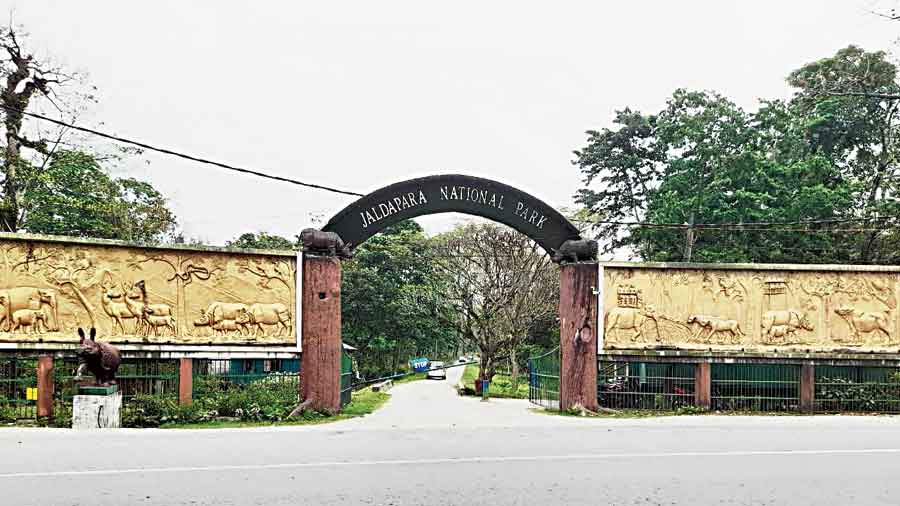Guides at the Jaldapara National Park — the largest rhino habitat of Bengal in Alipurduar district — have demanded a hike in their fee from mid-September.
For any tourist planning to avail a car safari at the national park, it is mandatory to take a guide. Altogether, 69 trained guides, all local youths registered with the state forest department, work in Jaldapara.
Since 2016, a guide earns Rs 300 for a single trip. “Our rates have not been revised since 2016. In view of the rise in the prices of essential goods, we want the forest department to increase our charge by only Rs 100 per trip,” said Chandan Gope, one of the guides.
The forest department fixes the rates of guides, car safari and other charges.
He said that like every year, the core forest areas had closed on June 15 and will reopen on September 16.
“The department should consider our demand. If not, we will stop working from September 16 when the forests reopen. We may even resort to protests and stop the car safari,” added Gope.
During the car safari that lasts for around an hour, the guides provide information about the flora and fauna of the national park to tourists. In north Bengal, Jaldapara is a prominent destination for tourists that houses over 250 one-horned rhinos and a number of other wild animals including elephants, gaurs, deer and leopards.
On Monday, the guides submitted a memorandum to the assistant wildlife warden of the park, on their demand.
Deepak M, the divisional forest officer of Jaldapara wildlife division, said he will forward the memorandum to his seniors.
Officials of the Buxa Tiger Reserve (BTR) have served notices to several hotels and restaurants in Alipurduar town, citing that for quite a while, wastes and plastic are being dumped by them in the reserve forest area.
“We have cautioned them so that they abstain from disposing such materials in the BTR area. If they do not listen, we will take legal steps. The local civic body has been asked to see that these establishments dispose of the waste under guidelines,” said a forester, adding that indiscriminate dumping of trash damages soil and pollutes the environment. Wild animals also fall ill consuming plastic dumped with food items.
“The railway authorities have also been told to alert passengers along the Dooars rail route (which moves through reserve forests) so that they do not dump food items, plastic or wastes in the forest areas,” the official added.










